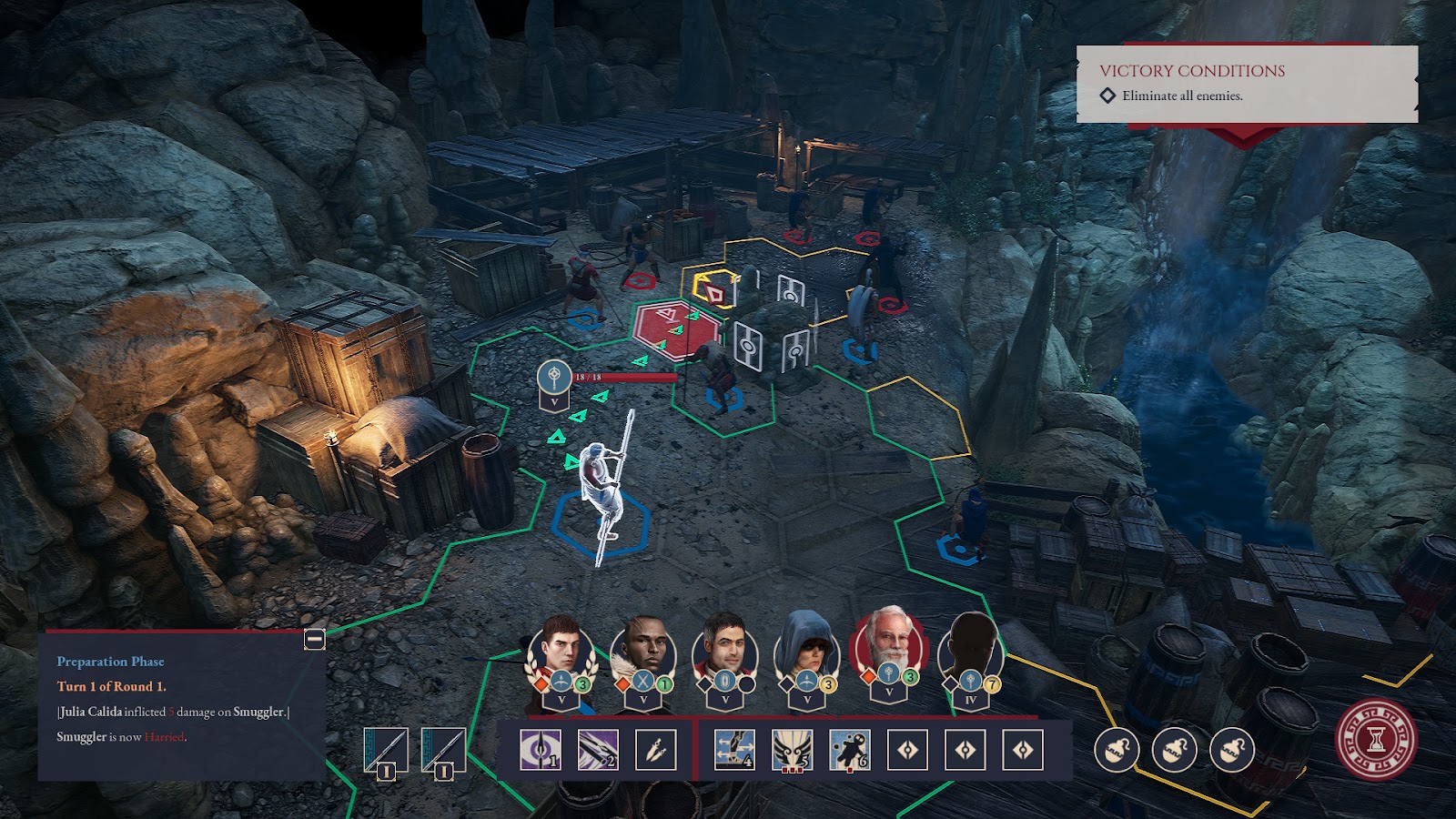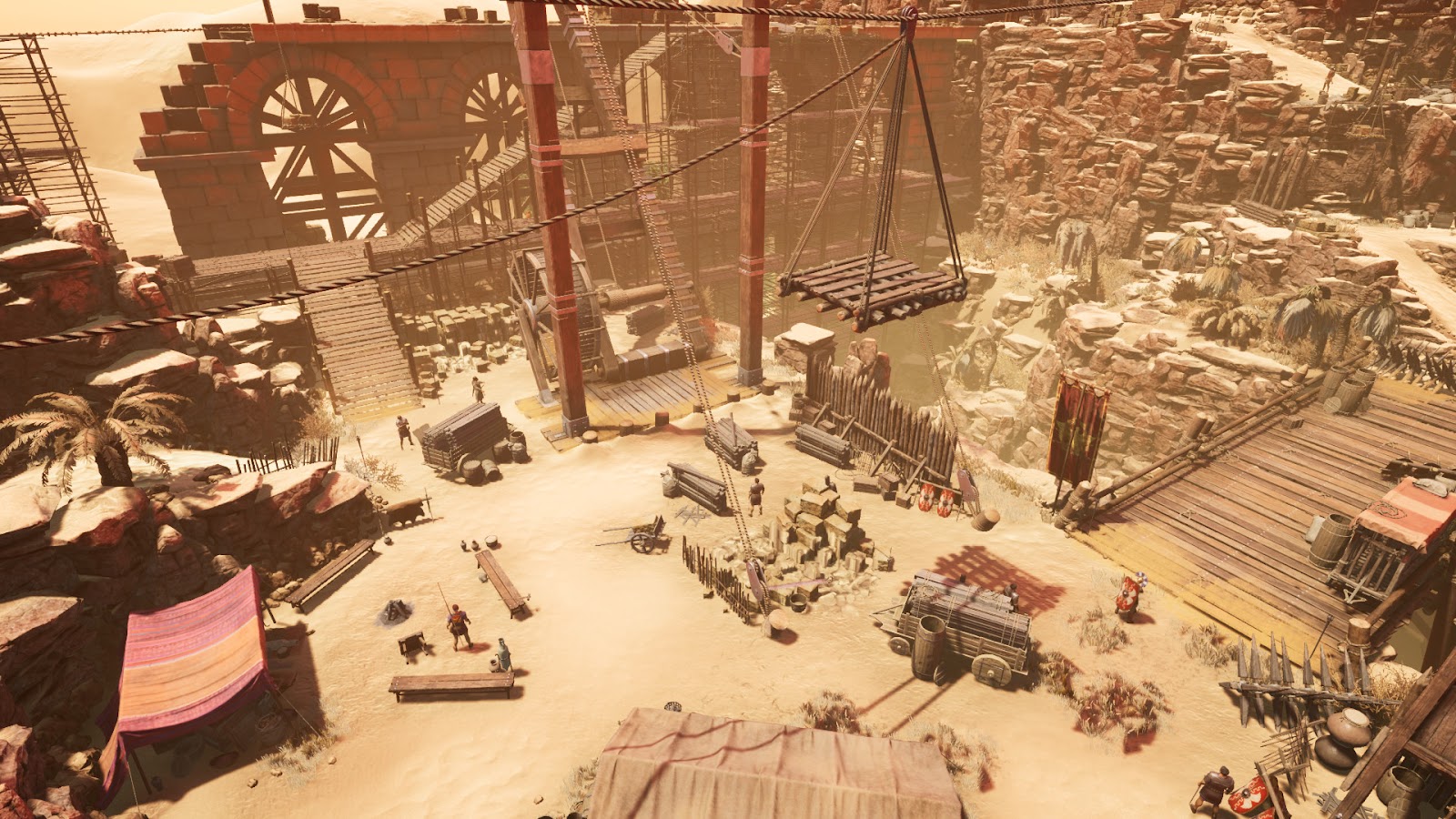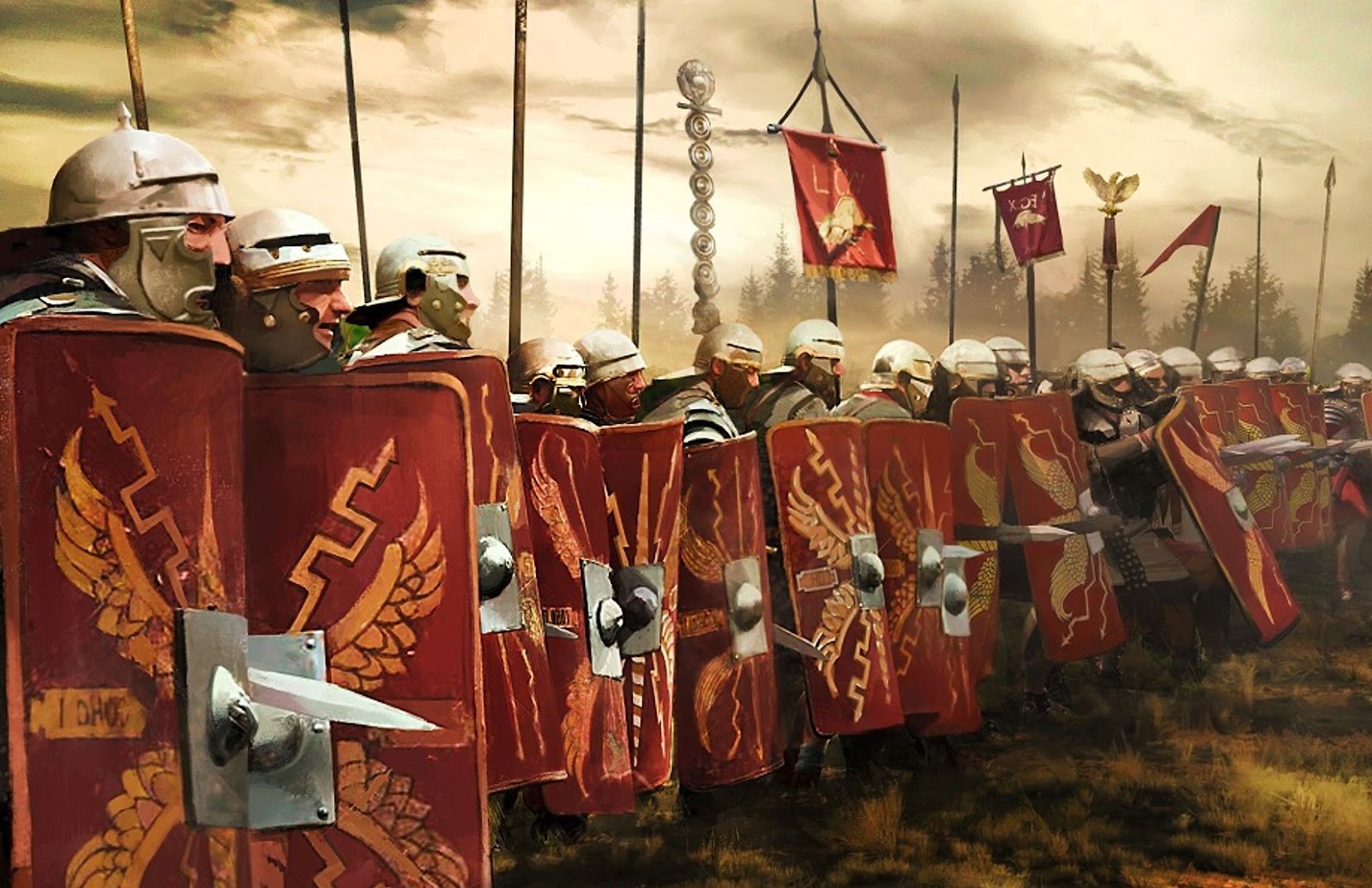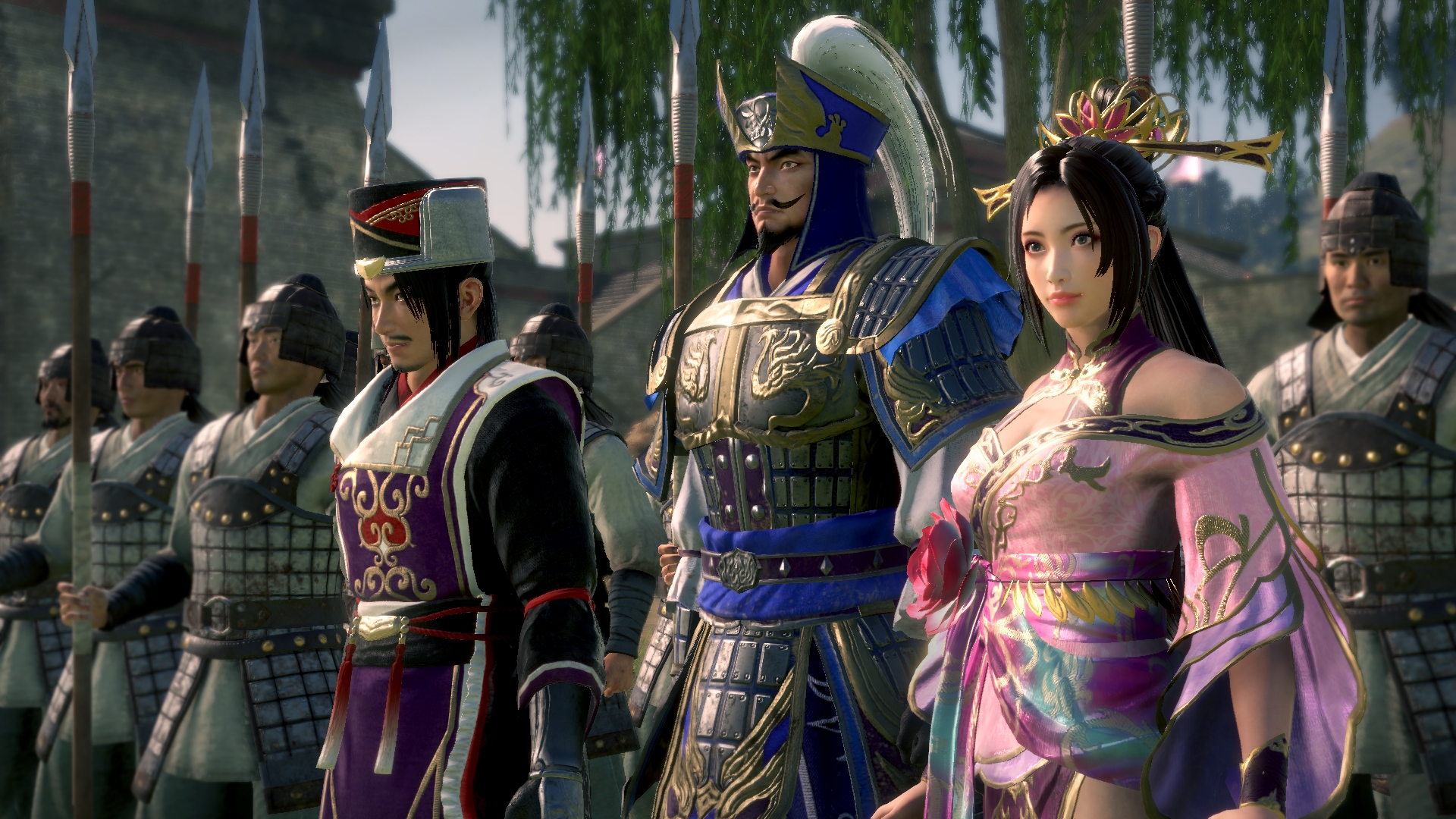Going into Expeditions Rome, and having not played the previous titles in the series, I had no idea what to expect. What I got is a grand and historical blend of RPG, strategy, and management, and that’s all very good stuff. I really like this game.
The game takes place in an alternative history (but still authentic) Roman empire, and kicks off with you – a noble – fleeing from almost certain death following some political turmoil in the capital. Nothing unusual there. Most of the Roman empire’s history involved political turmoil. You end up on the small island of Lesbos (it’s a real place), with a couple of companions, and you’re tasked with helping a Roman legion there deal with a force of pirates that are making things in the region difficult.
The first couple of engagements here will make you think that Expeditions: Rome is Baldur’s Gate: The History Edition. Combat is strictly tactical and turn-based, but otherwise, that game is exactly what you would expect from a Baldur’s Gate game – there’s the moral decision-making, the alternative way to tackle quests, the fluctuating relationship with your party members (based on whether you do things they approve of or not), and so on. There are even some complex skills and ability trees that really force you to focus on character development if you want to have any hope of having a party that can deal with the challenges thrown at it. Overall, it comes across as an isometric-perspective western RPG, just with a historical fiction setting rather than fantasy, and I was prepared to have a great time with that, on that basis alone.

But then it broadens in scope, and suddenly you find yourself in control of a legion. Now, in addition to everything else, you need to handle the recruitment and movement of forces, keep the forces fed, hydrated, and attended by slaves (which are a faceless resource and yes I’m aware that that will make some people uncomfortable, but we are talking about ancient Rome here). You start having to prepare for larger-scale battles while navigating the clandestine politics of the era, collecting resources to reinforce and supply your forces, and dealing with an ever-broadening range of events that are designed to drag you down. Now Expeditions: Rome is a historical take on XCOM, with a different combat system, but the same complexities when it comes to managing your campaign.
It never gets so big in scope that you can overlook the individuals, however. With poor management, your best fighters can get injured and have to spend quite a lot of time recovering. With a generally challenging combat system injuries are more an inevitability than a possibility, and then you’ll find yourself scrambling for a combat team to field in the next battle, sans some of your most valued members, if you’re not careful in how you play.
There’s a nice sensation of authenticity around Expeditions Rome. You get to meet, interact with and complete quests for a wide range of people, visit a great number of locations, and customise your forces as you feel fit. Rome is by no means a short game. Not including the need to restart once or twice, I believe I spent around 40 hours in the game and haven’t quite hit the ending (or, possibly, haven’t got all that close to reaching the ending at all), but it’s one of those rare times that I think the length is necessary and justified for the experience, because like a lot of good historical fiction, the epic, empire-disrupting events that the game depicts demand that scale. I’ve become fully invested in my character’s career, the health and survival of her companions, and indeed the future of Rome itself, which remains one of the most fascinating empires that has ever been inflicted on the world.

There is a strong sense of agency that runs through the flow of the game. You’re frequently called on to make important decisions, and those decisions go beyond the “good vs. evil” or even “law vs. chaos” dichotomies that is typical for “morality systems,” in video games. Here the decisions aren’t really split in such a way. Rather they’re presented as the best two decisions in response to probing questions. The way your companions respond is fascinating, too. The barbarian-style gladiator character, for example, I assumed would demand that I brutalised everyone around me, but because the decisions I needed to make were more nuanced than “disembowel them all” and “blow kisses their way,” his characterisation and responses to my decisions were conveyed as more nuanced, and therefore more interesting, too.
Historical fiction is one of the literary genres that video games do relatively well, and I have theories about why that might be the case. Principally, I do believe that because a lot of these stories are heavily focused on conflict, they’re a natural fit for games. Romance of the Three Kingdoms, for example, is close to being one long battle scene (along with heroes doing anime-style hour-long angry looks at each other before fighting). Rome taps into this opportunity to similarly focus the action, too. We know a lot about the culture, life and workstyles of Romans, but though we could easily depict those in a video game authentically, these developers clearly felt that that was for the dry history books. Historical fiction, in cinema, TV, books, and games, is much more about the military exploits and tactical brilliance of the generals.
And this is why Expeditions: Rome comes across as an authentic effort at historical fiction. It slots in nicely with the genre tropes, and is backed by enough research and background to get the aesthetics and tone right. I wouldn’t want to provide this to students as any kind of study in the era, but for students of ancient Rome, this is a depiction that should entertain and engage on one particular area – its military tradition.
Historical fiction is a quick way to my heart, and while, if I were inclined to make a historical fiction game set in ancient Rome myself, I would probably go with some kind of retelling of Caligula’s story (note: I swear it’s so much more interesting than the popular stories would have you believe), I found this to be interesting and engaging experience on every level. The tactical action is challenging and deep, the management side of things is robust, and the story that it weaves will keep you invested, even 40 or more hours into it. This is an early game of the year contender.











